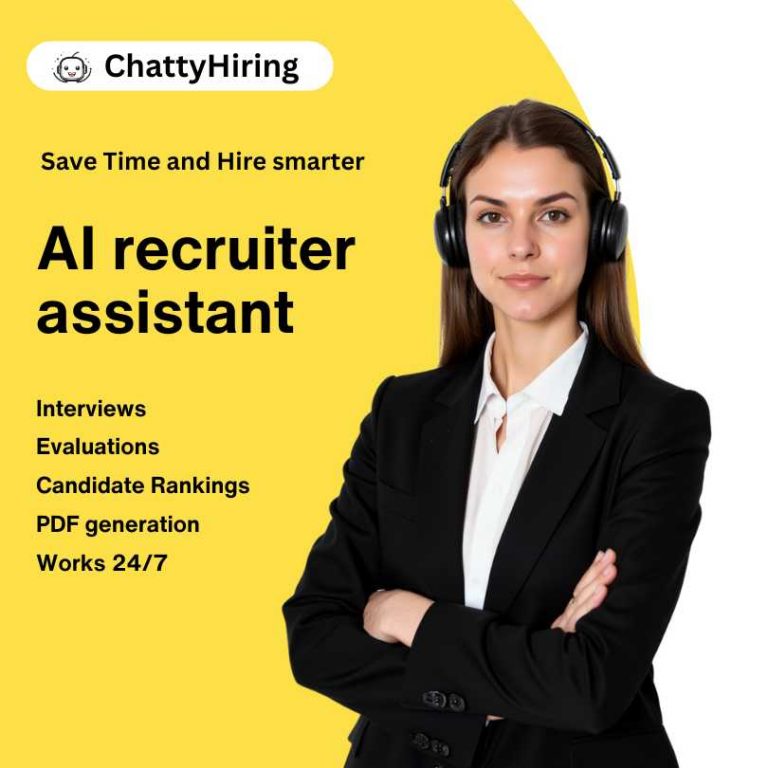AI for achieving diversity and inclusion in hiring practices has revolutionized the traditional recruitment landscape, paving the way for fairer, more unbiased candidate evaluations and streamlined processes. As organizations strive to build diverse teams reflective of society’s multifaceted fabric, the integration of AI technologies offers a progressive approach to reshaping hiring practices for inclusivity and equality.
Leveraging AI tools for inclusive job descriptions
Analyzing job descriptions with AI technology
In today’s competitive job market, crafting inclusive job descriptions is crucial for attracting a diverse pool of candidates. AI tools can analyze job descriptions to ensure they are free from bias and inclusive in nature. By leveraging AI for this task, companies can enhance their recruitment efforts and promote diversity and inclusion in the hiring process.
Benefits of gender-neutral language
AI tools can help identify language that may deter diverse candidates from applying.
By using gender-neutral language in job postings, companies can appeal to a wider range of applicants.
Eliminating gender-specific terms can create a more welcoming and inclusive environment for all potential candidates.
Tailoring job descriptions for diversity
AI technology can suggest changes to job descriptions to attract candidates from different backgrounds.
Including diversity and inclusion statements in job postings can signal a company’s commitment to equality.
Customizing job descriptions based on AI recommendations can lead to a more diverse applicant pool.
When companies utilize AI for analyzing and optimizing job descriptions, they are taking a proactive step towards achieving diversity and inclusion in their hiring practices. By removing bias and promoting inclusivity from the initial stage of recruitment, organizations can foster a more diverse workforce and create a culture of equality and respect.
Implementing AI interview assistants for fair evaluation
A. Unbiased Candidate Assessment with AI
When it comes to evaluating job candidates, unconscious bias can unknowingly influence decision-making. AI interview assistants offer a solution by conducting standardized, unbiased interviews that focus solely on the candidate’s qualifications and skills. By removing subjective human elements from the evaluation process, companies can ensure fair treatment for every applicant.
B. Advantages of AI in Candidate Evaluation
AI algorithms are designed to evaluate candidates based on predetermined criteria, reducing the risk of bias.
By using AI interview assistants, companies can provide all candidates with equal opportunities to showcase their abilities.
The consistency of AI assessments helps in making objective hiring decisions that align with the organization’s diversity and inclusion goals.
C. Equal Opportunities through AI Assessments
AI interview assistants enable companies to assess candidates solely on job-related competencies.
Candidates from diverse backgrounds can feel confident that their skills are being evaluated fairly.
Implementing AI for candidate assessments not only streamlines the hiring process but also promotes transparency and equality in recruitment practices.
By leveraging AI interview assistants for candidate evaluations, organizations can ensure that their hiring practices are inclusive and unbiased. Through the use of technology-driven assessments, companies can focus on identifying the best talent based on merit and qualifications, leading to a more diverse and inclusive workforce.

Enhancing candidate experience with AI-driven processes
Streamlining communication with AI-powered chatbots
In the realm of recruitment, communication plays a vital role in candidate experience. AI-powered chatbots offer a seamless way to engage with candidates throughout the hiring process. These chatbots can provide instant responses to queries, schedule interviews, and even collect feedback, all while maintaining a personalized touch that enhances the candidate’s overall experience.
Personalizing interactions for diverse candidates
AI technology can analyze candidate data to personalize interactions based on individual preferences.
Personalized messaging can make candidates feel valued and respected, irrespective of their background.
Tailoring communication to cater to diverse candidates can significantly improve engagement and retention rates.
Improving candidate satisfaction with AI technologies
AI-driven processes reduce response times and provide round-the-clock support to candidates.
Candidates appreciate the convenience and efficiency of interacting with AI assistants.
Implementing AI technologies in candidate communication leads to a positive perception of the company’s recruitment practices.
By incorporating AI-driven processes to enhance candidate experience, organizations can create a more inclusive and personalized recruitment journey for all applicants. The use of AI-powered chatbots not only streamlines communication but also ensures that candidates feel heard, valued, and supported throughout the hiring process, ultimately contributing to a positive employer brand image.
Measuring success: analytics and metrics for inclusive hiring
Tracking diversity metrics with AI
In the pursuit of fostering a diverse and inclusive workplace, ongoing measurement and analysis are key. AI technologies can assist in tracking diversity metrics throughout the recruitment process. By leveraging AI-powered analytics, organizations can gain valuable insights into the effectiveness of their diversity initiatives and identify areas for improvement.
Analyzing the Impact of AI on diversity goals
AI tools provide data-driven insights into the impact of diversity and inclusion strategies.
By measuring the success of AI implementations, companies can gauge their progress towards diversity goals.
Monitoring the performance of AI in recruitment helps ensure alignment with diversity objectives and ethical hiring practices.
Continuous improvement through data Insights
AI analytics enable the identification of patterns and trends related to diversity and inclusion.
Data-driven decisions help in optimizing recruitment strategies for better diversity outcomes.
Leveraging AI for tracking metrics allows for continuous improvement and refinement of inclusive hiring practices.
When organizations employ AI for measuring diversity metrics and analyzing recruitment data, they are better equipped to drive meaningful change and cultivate a culture of inclusivity. By leveraging the power of AI-driven analytics, companies can make informed decisions, track progress effectively, and continuously enhance their hiring practices to achieve diversity and inclusion goals.

Conclusion
Embracing AI for inclusive hiring practices
In conclusion, the integration of AI technologies in recruitment processes represents a groundbreaking shift towards achieving diversity and inclusion in hiring practices. By leveraging AI for various stages of the recruitment journey, organizations can overcome biases, streamline processes, and foster a more inclusive workplace culture.
Key takeaways about diversity and AI:
AI tools can help analyze job descriptions and ensure they are inclusive and free from bias.
Implementing AI interview assistants leads to fair and unbiased candidate assessments.
AI-driven communication processes enhance candidate experience and engagement.
Tracking diversity metrics with AI analytics allows for continuous improvement in diversity initiatives.
As businesses strive to create diverse and inclusive work environments, adopting AI for recruitment practices can play a pivotal role in driving positive change. The use of AI for achieving diversity and inclusion in hiring practices not only benefits organizations by attracting top talent but also contributes to building a more equitable and diverse workforce for the future.
For further insights on how AI is transforming recruitment practices, explore how industry leaders are leveraging AI technologies to drive diversity and inclusion in their hiring processes.
Frequently Asked Questions
How does AI technology help in reducing unconscious bias in the hiring process?
AI technology plays a pivotal role in mitigating unconscious bias by standardizing candidate evaluations based on predetermined criteria. By removing subjective elements and focusing solely on qualifications and skills, AI ensures fair and unbiased assessments.
Can AI tools assist in analyzing and optimizing job descriptions for inclusivity?
Yes, AI tools can analyze job descriptions to identify language that may deter diverse candidates. By suggesting gender-neutral language and inclusive phrasing, AI helps attract a wider range of applicants.
How do AI interview assistants ensure equal opportunities for all candidates?
AI interview assistants conduct standardized interviews tailored to job-related competencies, providing every candidate an equal chance to showcase their skills. By eliminating bias and subjectivity, AI promotes transparency and equality in candidate assessments.
What are the benefits of leveraging AI-powered chatbots in candidate communication?
AI-powered chatbots streamline communication by providing instant responses, scheduling interviews, and collecting feedback. Personalized interactions based on candidate data enhance engagement and improve overall candidate experience.
How can organizations measure the success of AI in achieving diversity and inclusion goals?
Organizations can track diversity metrics with AI analytics to gain insights into the effectiveness of their initiatives. By monitoring the impact of AI on recruitment outcomes, companies can make data-driven decisions to continuously improve their inclusive hiring practices.
-

A passionate advocate for the future of HR innovation. With expertise in leveraging AI to revolutionize recruitment processes, Carlos has a clear vision: empower HR teams while creating meaningful candidate experiences.
View all posts



